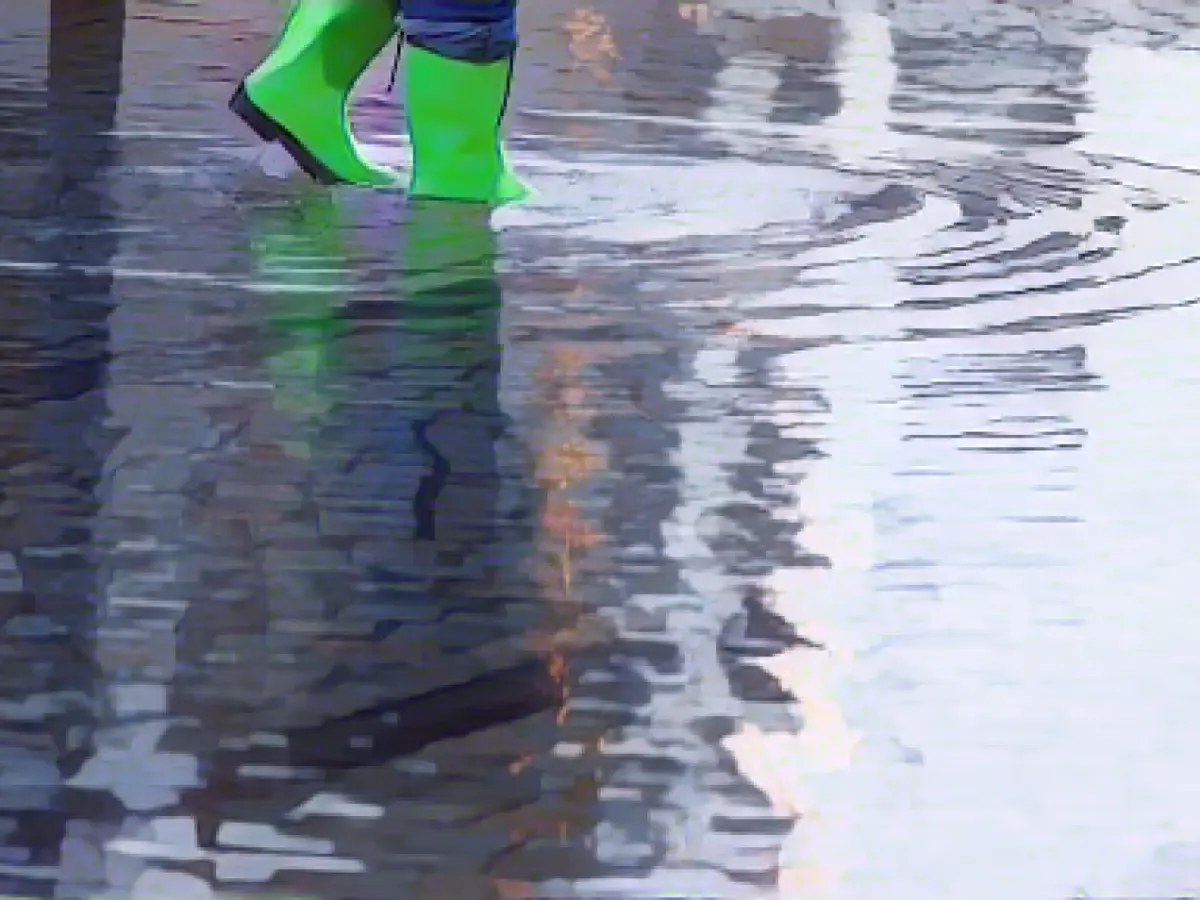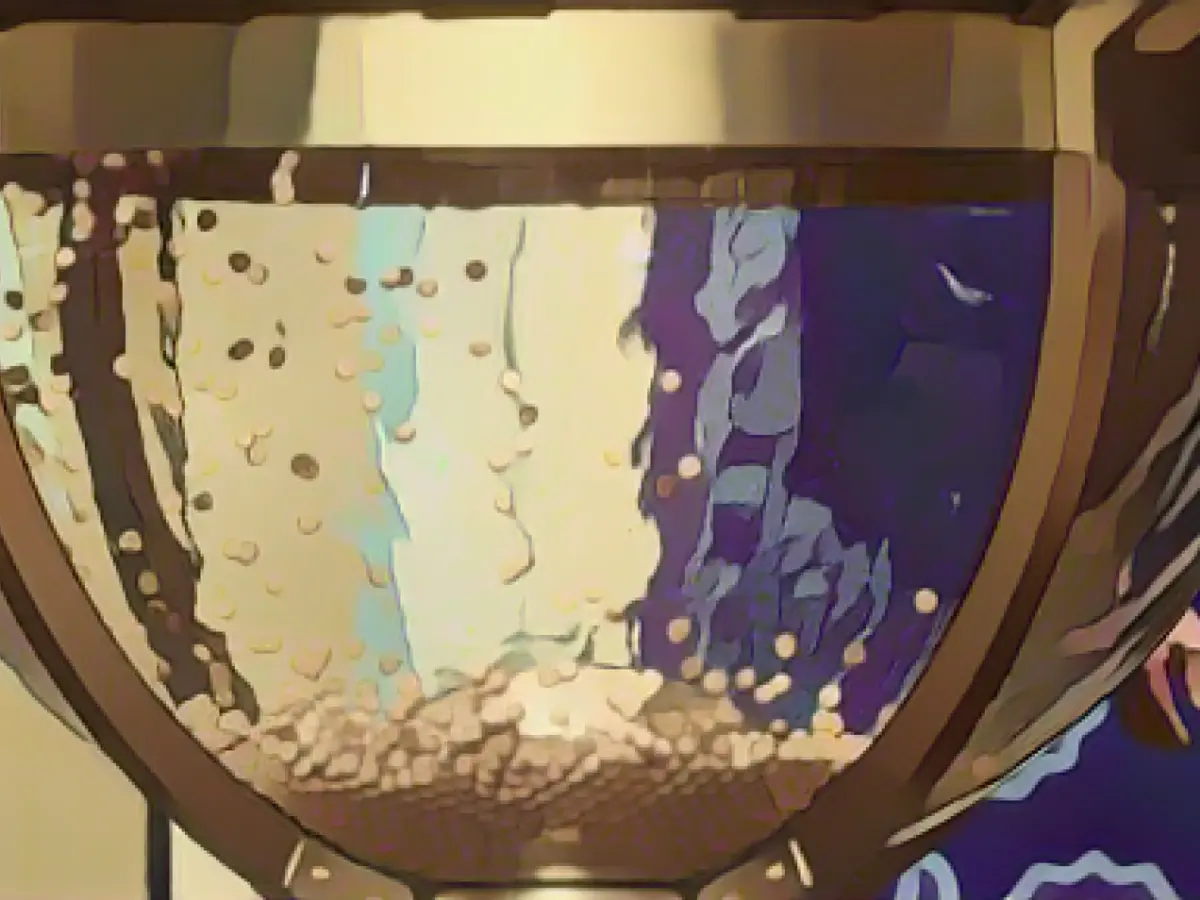Festive every year: The comeback of woody evergreens
Ditch the needles and close the loop with wooden Christmas trees. Growing in popularity for their environmental appeal, these alternatives to traditional fir trees are on the rise. German artisans like Thilo Tolkmitt in Stahnsdorf, Brandenburg, craft these trees by hand with up to 90 slats of pine or spruce, which you assemble at home. "Place the slats on a pole, attach it to a stand, and flip it upside down for added flair," advises Tolkmitt. He even created holes for hanging decorations on the sides.
Plagued by pine needles in his living room, Tolkmitt came up with the ingenious idea after searching online for Christmas tree alternatives. "Friends encouraged me to sell them, and my daughter suggested I open my own business," says Tolkmitt. Together with his cousin Ulrike Thunack, they launched 'Franky Tree' three years ago, named after Thunack's mini cocker spaniel.
Online success across the borders
Nearly 100 percent of Franky Tree's business is conducted online, with clients ranging from Germany to Austria and Switzerland. Thunack says, "Both private individuals and companies appreciate the eco-friendly alternative — keeping offices free from discarded trees after the holidays."
Risky but rewarding undertaking
Although the market is growing, the business of wooden Christmas trees is highly competitive. The construction technician Tolkmitt left his job in the public sector to focus on tree production. He warns against dwelling on the high costs, unpredictable timber prices, and short sales season.
Germany's wooden tree revolution
Berlin scenographer Merlin Ortner-Exss and Crosstree tree manufacturers from the Black Forest contribute to the movement. The latter craft wooden trees that come close to resembling natural trees in appearance. Saarburg's Tischler-Tanne is another popular choice, featuring more traditional slat designs.
Lovi's Finnish wooden trees have also gained popularity, being sold in Ahrensburg, Schleswig-Holstein. Riikka Wartiainen, owner of Koti, shares how demand for these Nordic-designed trees has been steadily growing. "People appreciate the durability and are willing to invest in the long term," explains Wartiainen.
Get creative with pre-loved Christmas decor
During the holiday season, TV presenter Thomas Gottschalk adopted a folding artificial tree, advocating for its environmental and economic benefits. Nabu resource policy expert Indra Enterlein encourages consumers to consider a wooden tree as an alternative to cutting down trees, but only if reused for multiple years. Environmentally-conscious blogger Alexandra Achenbach shares her preference for recycled or repurposed wooden Christmas decor.
While Tolkmitt and Thunack continue to source new materials for their trees, they support reforestation efforts by collaborating with the organization Viva la Wald in Potsdam. "Each Franky Tree purchase contributes to planting a new tree in Brandenburg," says Thunack.
Customization options to serve the sustainability seekers
To cater to the increasing demand for environmentally-friendly and customizable alternatives, Franky Tree now offers a variety of sizes, shapes, and decoration options. Even better, they directly attach decorations onto the slats, making the tree a one-of-a-kind, eco-friendly Christmas staple. Blogger Alexandra Achenbach further suggests repurposing old wooden frames or found wood instead of purchasing new wooden trees for a more eco-friendly and affordable holiday.
Source:
Sustainable Wooden Christmas Trees:
Wood is a versatile, eco-friendly material for Christmas trees. Gain insights into the advantages and challenges of investing in sustainable wooden trees during the holiday season:
Pros
- Sustainable and reusable: Trees made from natural wood or recycled materials promote conservation and allow for multiple uses, ultimately reducing waste.
- Carbon sequestration: Wooden trees can help soak up greenhouse gases during their growth, contributing to lessening climate change impacts.
- Low maintenance: Materials like wooden trees require less upkeep compared to their traditional counterparts, making for easy care during the festive season.
Cons
- Initial cost: Wooden Christmas trees might prove more pricey upfront, but they offer long-term value given their durability and multi-use potential.
- Limited availability: While the market is growing, sources for wooden trees may be more limited than traditional tree options, making them harder to find.
- Sourcing considerations: It's essential to ensure that the wood used for sustainable wooden trees is ethically sourced and harvested responsibly.
In conclusion, sustainable wooden Christmas trees offer environmental benefits, reduced waste, and long-term cost savings. However, initial costs and sourcing practices need to be carefully considered to make the most of investing in a reusable tree.







